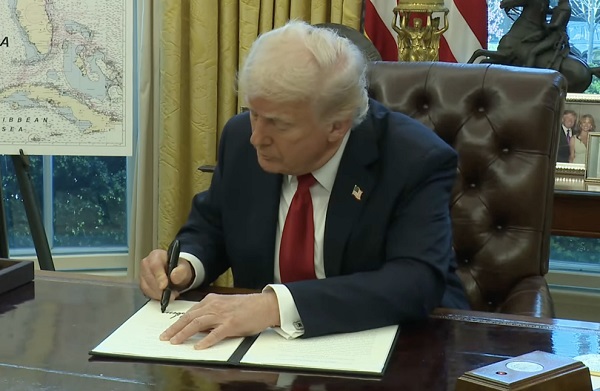Crime
Chinese Narco Suspect Caught in Private Meeting with Trudeau, Investigated by DEA, Linked to Panama, Caribbean, Mexico – Police Sources

 Sam Cooper
Sam Cooper
Shocking new details are emerging about a major Chinese organized crime suspect who met privately with Prime Minister Justin Trudeau, according to a police source who confirmed recent reporting from The Globe and Mail. The individual, Paul King Jin, is allegedly implicated in money laundering operations spanning the Western Hemisphere and has been a target of multiple failed major investigations in British Columbia. These investigations sought to unravel the complex interrelations of underground casinos and real estate investment, fentanyl and methamphetamine trafficking, and financial crimes that allegedly funnel drug proceeds from diaspora community underground banks throughout North America and Latin America, with connections to Chinese and Hong Kong financial institutions.
The failed investigations into Jin have involved both the RCMP and U.S. agencies. These operations stretch from Vancouver to Mexico, Panama, and beyond, multiple sources confirm.
Repeated efforts to reach Jin for comment through his lawyer in the British Columbia Cullen Commission, which stemmed from investigative journalism exposing BC casino money laundering, have not been successful. Recent BC civil forfeiture filings seeking to seize alleged money laundering proceeds from Jin, with cases connecting 14 Vancouver homes to entities in Hong Kong and China, also indicate Jin has not been responsive through a lawyer.
Highlighting longstanding U.S. government concerns over the B.C. investigations and suspects like Jin, Mayor Brad West confirmed in exclusive interviews with The Bureau that U.S. Secretary of State Antony Blinken expressed dismay over Canada’s failure to successfully prosecute Jin and Chinese crime networks, specifically citing the collapse of the E-Pirate investigation. Reportedly Canada’s largest-ever probe into money laundering, E-Pirate fell apart in court after cooperating witnesses were exposed. One of the Chinese Triad narcotics traffickers targeted in E-Pirate surveillance, Richard Yen Fat Chiu, was found stabbed and burned to death near the Venezuelan border on June 20, 2019, according to Colombian news reports.
The Bureau has verified with a source possessing direct knowledge of Canadian policing failures that crucial intelligence regarding Sam Gor—a massive transnational crime syndicate—was provided to the RCMP by U.S. agencies yet failed to result in prosecutions.
One primary source confirmed a new detail reported by The Globe and Mail: Prime Minister Justin Trudeau was entangled in an RCMP surveillance operation that targeted Paul Jin and the Sam Gor networks in Richmond, British Columbia. The Globe reported that early in his tenure, Trudeau met with Jin at a closed-door gathering at the Executive Inn Express Richmond, near Vancouver International Airport. Three sources corroborated the meeting according to The Globe, which took place between late 2015 and early 2017. Also present at the meeting was a Chinese army veteran with close ties to Beijing. The Globe noted that the veteran had attended social events with Chinese diplomats, reinforcing concerns about political and security risks posed by these associations.
The Bureau’s police source, who is independent of The Globe’s sources, confirmed they were aware of the RCMP surveillance operation that placed Trudeau, Jin, and the Chinese army veteran together in a private meeting.
Meanwhile, Jin himself has been surveilled in meetings with Chinese police officers who have traveled to Richmond, according to a separate police source with extensive knowledge of Chinese organized crime and influence operations in Canada. Two sources further stated that Jin continues to operate underground casino networks in Richmond, where law enforcement intelligence believes he has erected a mansion using front owners. Membership at this establishment is reportedly set at $100,000 for high-rollers.
According to a criminal intelligence source, Jin has alleged ties to China’s Ministry of Public Security and the network of clandestine Chinese police stations in British Columbia investigated by the RCMP. Two sources confirmed that Jin has allegedly acquired a new luxury mansion in Richmond, registered under a nominee—an established organized crime tactic.
“Jin uses one of his flunkies as a nominee for it. Common practice,” the source said. They further alleged that one of Jin’s associates tied to the mansion was implicated with Jin in a significant 2009 methamphetamine investigation. “Again, the use of nominees for real estate and businesses. Organized crime 101.”
Jin’s activities extend well beyond Canada, two sources alleged.
“He’s spending a lot of time in Latin America and the Caribbean,” a source said. “Asian organized crime is running amok. Foreign actor interference is getting really established. How it works is the current government welcoming any contributions from the motherland. What does this have to do with Asian organized crime in Canada? There’s a trade connection now from those areas in Latin America and the Caribbean to Canadian Asian organized crime commodity trades, primarily via the Maritimes.”
Jin has also been linked to international criminal networks, with two sources indicating that he and other high-level Canadian Triad associates have been traveling extensively to Panama and other Latin American jurisdictions. These movements align with intelligence connecting Canadian Triads to Mexican cartel operatives, facilitating narcotics trafficking, money laundering, and commodity smuggling into the United States.
Panama, which Trump administration State Secretary Marco Rubio has flagged as a hub of Chinese crime and state influence, has emerged as a focal point for Jin’s operations. “Jin was spending an awful lot more time down in Panama, where we think he is putting a lot of his capital there,” a source familiar with North American law enforcement investigations said. “They have the same kind of problem going on in Panama City as Vancouver, with all of the condo towers, and they’re empty. So people are plowing money into that place too.”
Adding to the concerns, a source disclosed that Jin’s travels to Panama raised red flags within international law enforcement circles. Jin flew from Vancouver to Toronto, then to Mexico City, Colombia, and finally Panama. Upon arrival, Panamanian customs flagged discrepancies in his travel documents, detecting an alternate identity. He was deemed inadmissible and promptly deported along the same route back to Canada.
“They said, ‘No, you’re inadmissible. Something’s wrong here. You’re traveling under this name, but we have you here as another person.’ So Panama punted him and sent him back exactly the same route, and we caught wind of this because of the liaison office down in Bogota,” the source, who could not be identified due to sensitivities in Canada, said. “And they let us know, and locally, the CBSA guys let the Toronto guys know because that’s where he would clear Canada Customs coming back. So they were like, ‘Okay, this is worthy of an interview.’ And they put a flag in the system and everything else.
“To make a long story short, it all fell flat. Nobody interviewed him. He just came right back—came right back to his place here in Vancouver. And so it just shows you the brokenness of our own system, that we can’t even get a key guy like that consistently checked and stopped, and he’s traveling under false papers.”
Jin’s expanding influence in Panama is a significant development aligning with Trump administration concerns, the source said, underscoring broader fears about China’s growing criminal and political footprint in the Western Hemisphere.
The Bureau previously reported that the latest BC civil forfeiture case—the fourth against Jin in three years—suggests he is actively evading British Columbia court procedures. Court filings state that after being banned from British Columbia casinos, Paul King Jin shifted his operations to illegal gaming houses, generating over $32 million in just four months in 2015. These underground casinos became a crucial node in a cash-based network fueling the proliferation of synthetic drugs across North America.
The case intensified in November 2022 when Everwell Knight Limited, a Hong Kong-registered entity holding mortgages on 14 disputed properties linked to Jin, sought to dismiss the government’s forfeiture claim on procedural grounds. Everwell’s legal team invoked the Canadian Charter of Rights—an increasingly common legal strategy in Canadian money laundering cases—arguing that the Director of Civil Forfeiture had failed to meet procedural requirements.
In April 2023, the Director of Civil Forfeiture responded with a default judgment application, contending that Jin’s failure to file a defense effectively conceded key allegations. The case also underscored Jin’s pattern of evasion, with the Director’s counsel noting that an unnamed lawyer initially suggested they might represent Jin but then ceased communication, leaving his legal status unresolved.
Regarding another key Sam Gor associate, E-Pirate target Richard Chiu—the Vancouver-area drug kingpin found burned and stabbed in 2019 near Cúcuta, a city close to the Colombian border with Venezuela—Chiu had previously been convicted in Massachusetts in 2002 for conspiracy to distribute and possess heroin.
According to B.C. Supreme Court documents, Chiu was the subject of multiple Vancouver police drug investigations. In 2017, during one such probe, authorities surveilled an Audi Q7 leased to him. Civil forfeiture filings state that police observed Chiu’s wife, Kimberly Chiu, exiting the vehicle while a “known gang associate” placed a heavy bag into the trunk.
Kimberly Chiu later became the subject of a civil forfeiture case after police seized $317,000 from the Audi—most of it packed in vacuum-sealed bundles inside a duffel bag. However, unlike other suspects, Richard Chiu was never criminally charged in Canada or directly sued by the director of civil forfeiture.
The government’s statement of claim alleged that Kimberly Chiu was “acting as a courier for Asian organized crime,” a claim she denied. In her defense, she argued that Vancouver police had no lawful grounds to detain or search her.
The collapse of E-Pirate and related Canadian law enforcement failures prompted then-B.C. Attorney General David Eby to launch a review, but it led to no legal reforms or policy changes in the province.
2025 Federal Election
‘Sadistic’ Canadian murderer claiming to be woman denied transfer to female prison

From LifeSiteNews
The logical decision to house the male murderer with men flies in the face of the Liberal Party’s official stance, which is to incarcerate prisoners according to their ‘self-identified’ gender.
A Canadian man who butchered his family and now claims to be a woman will not be allowed to transfer to a female prison.
On April 8, Correctional Services Canada (CSC) announced that Mohamad Al Ballouz, who brutally murdered his wife and two children, will be sent to a men’s prison, despite claiming to be a woman, according to CTV News.
“When there are overriding health and safety concerns, the request is denied and alternatives are put in place to meet the offender’s gender‑related needs at the institution where they are incarcerated,” the CSC statement reads.
Following an assessment of Al Ballouz request, CSC confirmed that he “will be incarcerated in a men’s institution.”
On December 16, Al Ballouz, a 38-year-old from Quebec, was found guilty second-degree murder of his wife Synthia Bussières, first-degree murder of five-year-old Eliam and two-year-old Zac, and one count of attempted arson.
Crown prosecutor Éric Nadeau revealed that the murder took place in September 2022 when Al Ballouz slaughtered his family at their Brossard apartment. He stabbed his wife 23 times before suffocated his children and trying to set the apartment on fire. He then ingested windshield washer fluid, which is believed to have been a suicide attempt.
During the trial, Quebec Superior Justice Eric Downs described Al Ballouz, as having a “sadistic character” and being “deeply narcissistic.” He was sentenced to life imprisonment with no chance of parole for 25 years.
Throughout the trial, Al Ballouz, a biological male, claimed to be a woman and demanded that he be referred to as “Levana,” a change which was made after he was charged for his crimes. Notably, the Canadian Broadcasting Report’s (CBC’s) report of the case refers to the convicted murder as “she” and uses his fake name.
Following his sentencing, the murderer requested to be sent to the Joliette Institution for Women; however, Downs responded that is a decision for Correctional Service Canada.
Currently under the Liberal Party, the policy is to place prisoners according to their “self-identified” gender, not according to biology. As a result, male rapists and murderers can be sent to prison with females.
However, Al Ballouz’s case caused an uproar on social media as many pointed out that putting the murderer in a women’s prison would pose a danger to female inmates.
Conservative Party leader Pierre Poilievre has condemned the Liberal policy and promised that he would end this practice if elected.
“Surreal: A man who killed his wife and two kids now claims he is a woman to go to a female prison,” he wrote in a December 22 post on X.
“I can’t believe I have to say this: but when I’m PM, there will be no male prisoners in female jails,” Poilievre continued. “Period.”
Business
Canadian Police Raid Sophisticated Vancouver Fentanyl Labs, But Insist Millions of Pills Not Destined for U.S.

 Sam Cooper
Sam Cooper
Mounties say labs outfitted with high-grade chemistry equipment and a trained chemist reveal transnational crime groups are advancing in technical sophistication and drug production capacity
Amid a growing trade war between Washington and Beijing, Canada—targeted alongside Mexico and China for special tariffs related to Chinese fentanyl supply chains—has dismantled a sophisticated network of fentanyl labs across British Columbia and arrested an academic lab chemist, the RCMP said Thursday.
At a press conference in Vancouver, senior investigators stood behind seized lab equipment and fentanyl supplies, telling reporters the operation had prevented millions of potentially lethal pills from reaching the streets.
“This interdiction has prevented several million potentially lethal doses of fentanyl from being produced and distributed across Canada,” said Cpl. Arash Seyed. But the presence of commercial-grade laboratory equipment at each of the sites—paired with the arrest of a suspect believed to have formal training in chemistry—signals an evolution in the capabilities of organized crime networks, with “progressively enhanced scientific and technical expertise among transnational organized crime groups involved in the production and distribution of illicit drugs,” Seyed added.
This investigation is ongoing, while the seized drugs, precursor chemicals, and other evidence continue to be processed, police said.
Recent Canadian data confirms the country has become an exporter of fentanyl, and experts identify British Columbia as the epicenter of clandestine labs supplied by Chinese precursors and linked to Mexican cartel distributors upstream.
In a statement that appears politically responsive to the evolving Trump trade threats, Assistant Commissioner David Teboul said, “There continues to be no evidence, in this case and others, that these labs are producing fentanyl for exportation into the United States.”
In late March, during coordinated raids across the suburban municipalities of Pitt Meadows, Mission, Aldergrove, Langley, and Richmond, investigators took down three clandestine fentanyl production sites.
The labs were described by the RCMP as “equipped with specialized chemical processing equipment often found in academic and professional research facilities.” Photos released by authorities show stainless steel reaction vessels, industrial filters, and what appear to be commercial-scale tablet presses and drying trays—pointing to mass production capabilities.
The takedown comes as Canada finds itself in the crosshairs of intensifying geopolitical tension.
Fentanyl remains the leading cause of drug-related deaths in Canada, with toxic supply chains increasingly linked to hybrid transnational networks involving Chinese chemical brokers and domestic Canadian producers.
RCMP said the sprawling B.C. lab probe was launched in the summer of 2023, with teams initiating an investigation into the importation of unregulated chemicals and commercial laboratory equipment that could be used for synthesizing illicit drugs including fentanyl, MDMA, and GHB.
The Bureau is a reader-supported publication.
To receive new posts and support my work, consider becoming a free or paid subscriber.
Invite your friends and earn rewards
-

 Alberta2 days ago
Alberta2 days agoAlberta takes big step towards shorter wait times and higher quality health care
-

 Business2 days ago
Business2 days agoStocks soar after Trump suspends tariffs
-

 COVID-192 days ago
COVID-192 days agoBiden Admin concealed report on earliest COVID cases from 2019
-

 2025 Federal Election1 day ago
2025 Federal Election1 day agoResearchers Link China’s Intelligence and Elite Influence Arms to B.C. Government, Liberal Party, and Trudeau-Appointed Senator
-

 Business2 days ago
Business2 days agoScott Bessent Says Trump’s Goal Was Always To Get Trading Partners To Table After Major Pause Announcement
-

 Energy2 days ago
Energy2 days agoTrump signs four executive orders promoting coal industry
-

 Business1 day ago
Business1 day agoTimeline: Panama Canal Politics, Policy, and Tensions
-

 COVID-191 day ago
COVID-191 day agoFauci, top COVID officials have criminal referral requests filed against them in 7 states






